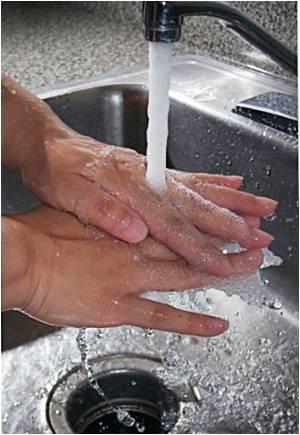
Associate professor Rolf Halden, of the Biodesign Institute at Arizona State University, is interested in chemicals produced in high volume for consumer use.
Levels of triclosan in humans have increased by an average of 50 percent since 2004, according to newly updated data from the Centers for Disease Control and Prevention (CDC).
The disturbing results of their research indicate that triclosan and triclocarban first aggregate in wastewater sludge and are transferred to soils and natural water environments, where they were observed to persist for months or years.
The chemistry behind these compounds, which contain benzene ring structures that have been chlorinated, make them notoriously difficult to break down. Further, they are averse to water or hydrophobic, tending to stick to particles, which decreases their availability for breakdown processes and facilitates long-range transport in water and air. A recent study demonstrated the accumulation of triclosan in dolphins from contaminated coastal waters.
Halden speculated that these chemicals might in fact persist in the solid byproduct left over after treatment-the sewage sludge.
Advertisement
One half of this sludge winds up on agricultural fields. The potential for these chemicals to migrate into food or leach into groundwater, has not received adequate consideration. It is likely that antimicrobials are capable of moving up the food chain, through a process known as biomagnification.
Advertisement
Source-ANI









